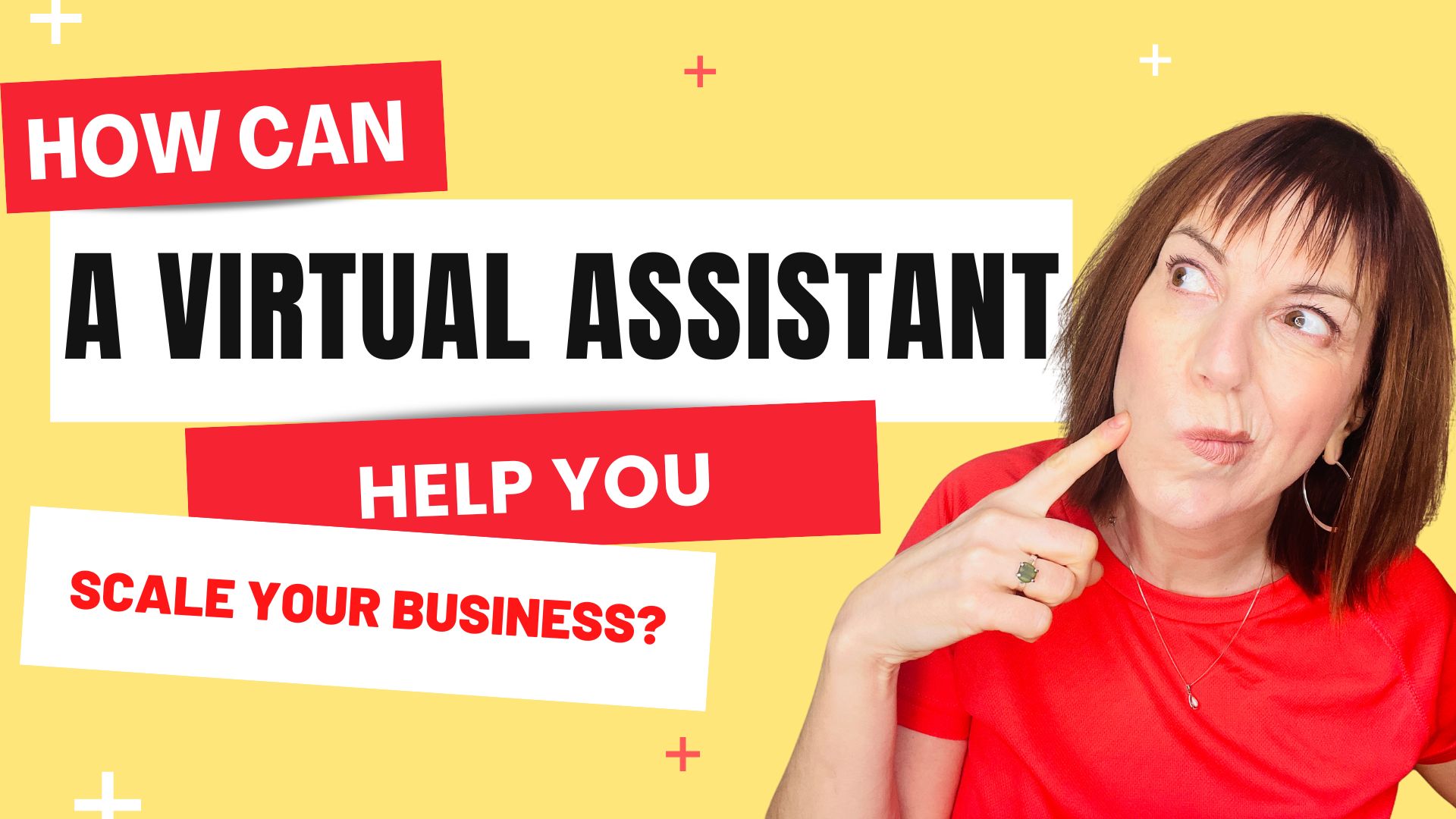Episode Summary
This week’s episode of Win The Hour, Win The Day Podcast interviews, David Tyler.
Unlock the secrets of master communicators with David Tyler in this insightful episode of “Win The Hour, Win The Day.” Discover how you can transform your communication skills to enhance your personal and professional life.
In this engaging episode, you’ll learn:
– How to master the art of active listening.
– The profound impact of empathy in communication.
– Techniques to adapt your communication style to your audience.
Get ready for powerful strategies that can boost your productivity and success! Tune in now to elevate your communication skills.
Power Personality Quiz! http://winbacktimequiz.com/
Win The Hour, Win The Day! www.winthehourwintheday.com
Podcast: Win The Hour, Win The Day Podcast
Facebook: https://www.facebook.com/winthehourwintheday/
LinkedIn: https://www.linkedin.com/company/win-the-hour-win-the-day-podcast
You can find David Tyler at
Website: https://davidtylerspeaks.com/
#KrisWard
#MasterCommunicator
#BusinessLeadership
Win The Hour Win The Day
https://winthehourwintheday.com
David Tyler Podcast Transcription
[00:00:00] Kris Ward: Hey everyone. Welcome to another episode of Win The Hour Win The Day, and I am your host, Kris Ward. And today we have in the house, David Tyler. Now he is a communication coach. Once he starts speaking, you’ll understand he’s more than a coach. He is like a major voice on a major network in Canada. Yes, we have television boys and girls throughout the world.
[00:00:22] It’s not just the Americans. Okay. So some of it is God given talent, but he is here to help us and give us nine transformative habits of master communicators. Welcome to the show, David.
[00:00:36] David Tyler: Hi, Kris. Thanks for for having me. And again, I was just realizing that the last time that we talked, we were talking about using the voice, your voice in business.
[00:00:44] It’s been like two years, I think, since the last time.
[00:00:47] Kris Ward: I know time flies. I thought you’re here like six months ago. So yes, you did bring up a good point. You’ve been here before. Yeah, we don’t do that a lot. So you are an elite crowd, but here we go. All right. The first one in the habits of master communicators is listening, doing, listen can’t even talk, listen actively.
[00:01:07] David Tyler: Yeah there’s actually,
[00:01:09] Kris Ward: I bet you I’m not good at it.
[00:01:10] David Tyler: There’s actually, there’s nine transformative habits that that I teach my students. We’re going to, we’re going to, we can talk about three of them.
[00:01:16] Kris Ward: Okay.
[00:01:17] David Tyler: There’s just so much stuff to to to learn to cover, but what I want to do, what I’d like to do is like to set things up for why it’s important for business leaders to be master communicators.
[00:01:29] Warren Buffett Warren Buffett, right? He actually said that by improving your communication skills, you can increase your value by 50%. And before we were talking, I decided to do a little bit of a little bit or a little bit of research. And I found some statistics. I love statistics.
[00:01:45] Okay. Numbers are always great when it comes to understanding. Maybe not that communication is a complex subject, but here’s, I’ve got three of them for you. Ready? 43 percent of business leaders claim that poor communication decreases productivity. These are business leaders. There’s almost half of business leaders claim that, that poor communication decreases productivity, a reason to become a master communicator.
[00:02:12] Here’s a, here’s another one for you. 42 percent of business leaders think that missed deadlines and extended timelines are the worst consequences of miscommunication.
[00:02:24] Kris Ward: Oh,
[00:02:26] David Tyler: Again, going back to what I was saying about Warren Buffett, improve your communication skills, increase your value 50%.
[00:02:30] And here’s the last statistic for you. 38 percent of business leaders have noticed the financial impact of poor communication.
[00:02:41] Kris Ward: Okay.
[00:02:41] David Tyler: Become a master computer communicator and you can, you can increase your bottom line. Really? That’s what we’re talking about.
[00:02:47] Kris Ward: You know what you are like, you’re just yanking my chain.
[00:02:51] Cause you’re going to get me all wild because we talk about that a lot with our leadership program and how we find, hire and onboard virtual assistants for our clients and when we do that and we help them with their super toolkits and stuff, it really is all about communication because I often refer to the corporate model is very parentified.
[00:03:07] It’s almost your boss checks your work like a parent or teacher. And so I often talk about, when things aren’t getting done, you’re not clear. You have this idea banging around in your head and you’re going 90 miles an hour. And that’s the whole thing. Why traditionally people don’t think VAs don’t work out because you’re just dumping on them, turning them into a task puppet.
[00:03:27] So anyhow, don’t get me started. You are so right. 43 percent of poor communication. Yeah. Oh, sorry. 43 percent of business leaders say poor communication affects productivity. You got me there. We could wrap this show up now. I’m done.
[00:03:42] David Tyler: You agree, but then here’s, but then here’s the other thing, Kris.
[00:03:46] You don’t need to work so hard.
[00:03:49] Kris Ward: Yeah.
[00:03:49] David Tyler: Communicate better.
[00:03:50] Kris Ward: Yeah.
[00:03:51] David Tyler: And that’s the reason why I came up with this with this list of simple habits that, that business leaders, anybody can use to start becoming a better communicator.
[00:04:00] Kris Ward: Okay, where do we start?
[00:04:02] David Tyler: If I told you give me the name of a person that you think is like a master communicator.
[00:04:06] They’re really good at communicating. Who would you think of?
[00:04:08] Kris Ward: Okay. I don’t want to get political. Forgive me. I’m not in the States, but I think Barack Obama does a really good job.
[00:04:14] David Tyler: Sure. Absolutely.
[00:04:15] Maybe maybe Anthony Robbins. I guess so.
[00:04:20] Kris Ward: I’m not a fan.
[00:04:21] David Tyler: He has. Yeah. He messed up his voice.
[00:04:23] Kris Ward: And I think he’s a lot of hype. That’s my sorry.
[00:04:26] David Tyler: Yeah.
[00:04:27] Kris Ward: In case he was waiting to be on the show. I’m sure he is. He, to me, it’s, we’re getting down a whole path, but to me, it’s got a ringing bell of cult in there but
[00:04:35] David Tyler: There is a little bit of that, but when you watch,
[00:04:37] Kris Ward: call leaders are good communicators because they’re making people do stuff.
[00:04:40] So I guess I, to, to my point, right?
[00:04:43] David Tyler: The first key thing that we’re going to talk about active listening. I think Anthony Robbins is good at that. If you’ve seen a video of him, when somebody stands up in the crowd and is speaking, And Anthony is there, he’s 100 percent focused on what is being said.
[00:05:00] And for the first point, active listening, master communicators are great listeners, 50 percent think about this 50 percent of any conversation is listening. I think it’s actually more than 50%, but 50 percent of any conversation is listening, and we need to get better at doing that. And like I was mentioning with Anthony Robbins, when one of his cult followers is speaking, He’s paying full attention.
[00:05:27] You could see his eyes, his body language. He’s there. He’s holding eye contact. He’s focused on the person who’s speaking and the best thing, and the other thing is just to keep your mouth shut. When you can actually hold eye contact, focus on the speaker and not say anything that is the an example of a master communicator.
[00:05:47] Oprah Winfrey does the same thing. Richard Branson, this is what a master communicator is.
[00:05:52] Kris Ward: Yeah. And so to that point, back to my original conversation here, where I talk about when you’re talking to your team and it’s a whole, like I say, team is philosophy, not a number. So you could have a team of one, a virtual assistant.
[00:06:04] We as entrepreneurs, coaches, consultants, founders, small business owners were like, Oh, I got to tell you what I need from you. Boom boom. And often if you don’t get what you’re looking from them, I’m like you got to ask questions. You got to be listening. You got to give them an opportunity to say I thought you meant this because you were, by the way, running by me 90 miles an hour saying that.
[00:06:22] So that’s a really good point is sometimes we think we have the message, but we need to, in order, we need to be listening at some point in that conversation, or really it’s not a conversation, it’s a speech.
[00:06:33] David Tyler: And just to continue on what you were saying, we need to reflect or paraphrase somebody speaking to us and a good example of that might be okay, so how do you think that we can approve our meetings?
[00:06:44] If somebody comes and says, Hey, our meetings are really bad and whatever. Okay. So I understand what you’re saying. How do you think that we can improve the meetings or, what does a good team meeting consist of that’s con that’s the reflection and the paraphrase. And guess what? It shows that you are actively listening to the team member or the person that that you’re speaking to.
[00:07:05] And that is a key habit of of a master communicator. You know what I mean? Yeah.
[00:07:10] Kris Ward: Yeah. I do. And it helps too, because we’re so many of us just want to, even when we think we’re helping we’re jumping to the conclusion or the answer. And I know I’ve pulled the trigger on that too many times where I think, Oh, I got the answer.
[00:07:23] Let me jump in. But I have learned if I keep asking more questions. The solution is different than what I thought it was. Okay. That’s a tough one because we, we think active listening. Sometimes you think the other person should be listening like, okay, I believe in active listening. Now listen to me while I talk.
[00:07:41] David Tyler: And another point of active listening, because it doesn’t just involve your ears. Remember last time we talked about, body language and tone of voice, active listening, good, active listening also includes reading those unspoken body language cues and the tone of voice
[00:07:58] Kris Ward: tone has got me in a lot of trouble throughout the years I have worked on it, but I think I would say to you is for me, you think you can hide stuff.
[00:08:08] Like when I, I’m a recovering Russia holic. And if you’re not sure about your person, business personality, we’ve got a quiz, check it out. Free gift G I F T from Kris K R I S. com. Go in there and tell you your business personality. And as a recovering Russia holic, sometimes my rush tone, it will come out.
[00:08:25] Like I’m saying something nice or whatever, but the tone is wrong because I’m rushing or doing whatever, which I have really worked on, but the tone is everything and the tone gets you a lot of trouble when you’re not even trying, it’s a gift, frankly,
[00:08:38] David Tyler: It’s a, it’s miscommunication.
[00:08:40] It’s an opportunity of miscommunication or for miscommunication with the tone of voice, and we talked about that last time also, let me give you, let me give you an anecdote when,
[00:08:49] when I was back in radio, I, I retired from actually live radio a long time ago, but when I used to work in radio, I had the opportunity to to do interviews with musical artists.
[00:08:59] It was on a musical radio station that I was on. And as somebody, just out of out of university, I went to Concordia here in Montreal in the communications department. I would write 10 questions. Here’s 10 questions. Okay. I’m going to be interviewing so and so here are 10 questions.
[00:09:13] And I would literally run down all of the questions. Okay. Question number one hi, where did you get your start? Two. And the thing is that I wasn’t listening in the beginning and by not listening, this is going back and to edit the interview by not listening and hearing what they were saying, I missed so many opportunities for followup questions and the interview would have been so much better.
[00:09:41] If I had just become a better listener. So when, maybe after a year of doing these kinds of artist interviews, I said in editing, I was like, Oh this could, I need to do this. I need to listen to what they’re saying. And oftentimes what would happen Kris was out of my 10 questions, I would ask one, then the whole interview would go in a completely different direction.
[00:10:01] So the key to becoming a, or one of the keys, I think to becoming a master communicator is to master active listening.
[00:10:11] Kris Ward: That’s a good point. And I do get a lot of compliments on this show and people will say, it sounds like a conversation that they just get to sit in on. And I think, I don’t know if I’m that great of an active listener.
[00:10:21] I think I’m just really blessed that I get to choose interesting people and I’m interested in what they’re talking about. And so therefore questions, become from that, but I have as a gasping on many shows hundreds now and there are times where people ask me like, you’re right, they got five questions and one is nothing to do with the other.
[00:10:39] In fact, if I answered the first question said, and then I, the house blew up and I know where to live for, a year, then the next question would be like, And when did you start your business? And it’s okay, there’s a big gap from what I just said there, buddy, but okay. All right.
[00:10:54] So a lot of power in active listening. And I would probably argue that so many of us could definitely improve that or drop the ball on it. It’s just, it’s never ending. It’s not like a diploma. You don’t get it and earn it. So it’s never ending. What’s another big one that you feel of the nine? Let me just whip through the that we just had.
[00:11:11] Yeah. A little bit of a teaser. So we’ve got listening actively being concise. They never met my grandfather. Let me tell you, use positive body language, show empathy, act and ask insightful questions, express gratitude, be authentic, adapt to your audience and practice self improvement. Okay.
[00:11:31] David Tyler: The second biggest one, because I really think that active listening is a big one, but the second biggest one is empathy.
[00:11:38] Kris Ward: Okay.
[00:11:39] David Tyler: I forget where that it was on the list. Okay.
[00:11:41] Kris Ward: That’s fine. So
[00:11:42] David Tyler: it’s down there. But but empathy and what a lot of people confuse is empathy for sympathy.
[00:11:50] Kris Ward: Okay.
[00:11:51] David Tyler: Empathy fuels connection while sympathy drives disconnection. Let me explain that. The most important purpose of communication is connection.
[00:12:07] And if you look at Maslow’s hierarchy of needs connection is is right there, it’s right in somewhere in the middle, it’s just above psychological needs and safety needs just above that is a sense of connection. And the last time that we talked it was just, towards the end of COVID.
[00:12:24] And I think that, that experience that I’m, I really want to forget about But that experience of being in COVID times was the lack of connection. And so many of us discovered how important creating that kind of of connection is so empathy. Itself as a habit fuels connection and and sympathy drives this connection.
[00:12:49] What empathy is percent perspective taking staying out of judgment. Recognizing emotion. Now that’s this thing, recognizing emotion in others. By doing,
[00:13:03] Kris Ward: let me jump in here for a second. So isn’t this a little bit like personality character characteristics because you’re empathetic or you’re not, that’s my perception.
[00:13:16] And my perception is I know. Okay. So my person, he’s shaking his head passionately. We’ll get to him in a minute. Cause my perception is people are either empathetic or sometimes they do, look, I have this example in my head. I hate using it, but I’m going to, I’m going to put it out there. Cause so when my husband passed away, it was really difficult at times when people would throw a lot of sympathy on me.
[00:13:37] And I had to learn how to navigate that because I wasn’t interested in that. And so they treated you different or they almost petted you and talk down to you. And I’d say, you know what, everybody has something. This is my something right now, because I was trying to manage their emotions and put them in play of this is not.
[00:13:53] The only thing about me, there’s so much more to me and I don’t need this to be the focal point of everything you do with me. And so to me, sometimes there is awkwardness of just Oh, they didn’t have experience. They didn’t know what to say. So I can see where they lean to the sympathy.
[00:14:07] They just don’t know. But being empathetic, sometimes also people say silly things like, one guy said Hey, I’ve been divorced 10 years now and I know exactly what you’re going through. Cause divorce is like a death. And I feel like saying, what’s like a death. When somebody dies, don’t tell me about your 10 year anniversary to a woman who doesn’t want to be married with you anymore.
[00:14:28] So can you teach these people that, or I think that comes from the core of who they are. They’re just missing the boat.
[00:14:34] David Tyler: Yeah. I think it comes down to practice practices is something that, that I that I push when talking about the nine transformative habits of master communicators you need to practice, you need to be in situations just this past weekend.
[00:14:48] I was in Los Angeles at a conference and I was practicing. There was about 40 of us there and I was making sure to take these nine things because I knew we were going to be talking today, taking these nine things and doing my best to do it. Did I do it? I did it. I did okay. But the point is to practice empathy.
[00:15:06] I, I agree with you. That is a difficult thing. Which is why I want to differentiate em empathy from sympathy. Brene Brown, I’m a big fan of Brene Brown. She’s a psychologist and she has a video on YouTube about empathy. And I forget what the title, but if you went to YouTube and you put Brene Brown empathy, you’re going to see one of her speeches was turned into a cartoon and it says it perfectly.
[00:15:33] Let me give you an example of in, in the, in a business setting, for example,
[00:15:36] Kris Ward: I understand the difference of empathy and sympathy. What I guess I’m asking for is how do you teach somebody that forgive me for saying this, how do you teach them not to say silly things?
[00:15:46] David Tyler: Yeah. That’s practice.
[00:15:48] Kris Ward: A stumper?
[00:15:49] David Tyler: Practice. Okay. That is practice.
[00:15:50] Kris Ward: So then also I guess what I would say to them is, I wasn’t rude to these people, right? So how do they even know they’re doing it wrong? I guess that’s the question is. So you were not empathizing with me at all. This derailed the conversation. I lost respect for you.
[00:16:06] I didn’t want to it was just silly, but how do they know, Hey, I need more practice in this area? Yeah. Yeah.
[00:16:12] David Tyler: Okay, here’s how about I’m going to give it. I’m going to reverse it around. Kris, you ready? You need to be empathetic to them.
[00:16:22] You need to empathize. You need to empathize with her. Uncomfortableness in the situation.
[00:16:28] Kris Ward: Who saw me as a problem? Not I, which I guess is the problem with all of us. Look at me.
[00:16:34] David Tyler: Yeah. But don’t forget, interaction communication is a, it’s a two way street. I don’t like using that, but it’s a, it is a two way street.
[00:16:40] So yeah, you feel like they’re being rude and you need to empathize with.
[00:16:46] Kris Ward: Okay. All right. I accept that. That makes sense. That does make sense. I, cause I am a generally empathetic, caring person. Don’t we all think we are? However, my aunt says you can’t fix stupid. So once in a while when somebody says something silly, I do get frustrated.
[00:17:04] And to let you know, when I started this journey, I did try hard because I did have somebody also who compared their dog dying to my loss. And I did, I said, I tried really hard to be empathetic because I said, you know what, loss is loss and they don’t understand unless they’ve been through a, a different kind of loss.
[00:17:19] So to them, that is a devastating loss is loss. So I did try to be empathetic, but they wore me down after a while, but that is a point. Okay. You’re right. It’s not about the, I, and to my bigger point, I can only fix me. I can’t fix them. So that was a powerful lesson. My God. Okay. What else do I need to work on David?
[00:17:38] David Tyler: Listen, what you need to understand is that becoming a master communicator is a, it’s a path. And like I said, even though I’ve been thinking about this for years about communicating, even I was having awkward communications speaking with people. This weekend. It’s a different thing than being in an office when you’re speaking at a convention, but let me give you this example of empathy in the business.
[00:18:02] Okay. So if an employee comes to you and they’re feeling stressed out with problems at home and at work, you could, as a manager, say something like, That sounds incredibly challenging. How are you holding up? Is there anything that I can do to support you during this time?
[00:18:19] Kris Ward: Okay. Okay.
[00:18:21] David Tyler: So the, to break it down is you’re acknowledging their struggles.
[00:18:26] You’re showing genuine concern for their wellbeing. And then offering support. You’re not trying to fix the problem. Why don’t you do this? Why don’t you do that? Now we’re starting to talk about sympathy.
[00:18:38] Kris Ward: Yeah.
[00:18:39] David Tyler: It’s I’ve turned it into I, we’ll talk about this later, but I don’t like acronyms, but if you wanted to remember that ASO acknowledging their struggles, show concern and offer support ASO.
[00:18:53] I don’t like it. We’ll get into that after though.
[00:18:55] Kris Ward: I think that’s a really good point because I had one of my clients, we called, she was working with one of the VAs, we found her and the VA was now going through a very difficult divorce. She had to move a whole bunch of variables about that. And my client said to me, Oh, I’ve been through that.
[00:19:09] I think I’ll talk to her about, Hey, I’ve been through, and I’m like, Ooh, let’s talk about that. So I said, Okay. Cool. First of all, there’s boundary issues there. And secondly, I firmly believe that I don’t care what you went through. I’m going through it now. Misery does not love company, I think, for most situations.
[00:19:24] But I said, now the boundaries are blurred. And like now you’re wanting to talk about when she may or may not. I don’t see that as an appropriate conversation at all. Here’s what you can say. And I did feed her line similar to what you just said. So I think it also does it, then somebody isn’t vomiting help all over you.
[00:19:40] So I think that’s a really good point you made. Okay. So I’m messing up on two of them so far. What’s the third one that I have to work hard on
[00:19:47] David Tyler: active listening and empathy. These are like the biggest, most important. And one that I often find people messing up is. Adapting to your audience.
[00:19:55] Kris Ward: Okay.
[00:19:56] David Tyler: No, your audience in, in, in my broadcasting world, we’ve got big audiences and sometimes it’s difficult to know what your audience. So we have to be, live in a sort of a general idea when you’re talking about mass communication for for TV news or for for for anything that you’re putting out on the radio commercials, et cetera, so adapting to your audience, understand what their needs and interests are.
[00:20:20] You need to stop and think about it. Maybe before you open a conversation with somebody, you need to understand what they’re thinking about what’s on their mind. So understand their needs and their interests and adjust your language and your tone. We’re going with the tone again. You’re not, if you’re in a business committee at business meeting, the language you’re going to use, you’re not going to include the word.
[00:20:43] Yo, unless you’re working for a hip hop clothing line, but you need to adjust your language. You’re not going to, you’re not going to speak to your boss the same way that you’re going to speak to your five year old child. So there’s the language barrier, not language barrier, but there’s the language aspect and the tone.
[00:21:02] Kris Ward: Yeah.
[00:21:03] David Tyler: If you talk to your boss like this, when you were asking for a raise or getting them to do something, probably wouldn’t go over well. So adapting to your audience. One of those aspects is adjusting your language and your tone. Are you familiar with Dr. Mitchell Kaku. He’s a professor of of theoretical physics.
[00:21:25] Kris Ward: No, I’m not David.
[00:21:27] David Tyler: Okay. I’m into that kind of stuff. You can look him up on, on YouTube too, but he is a master communicator when it comes to simplifying complex concepts.
[00:21:38] Kris Ward: I do appreciate that. I often talk about that in marketing and I say, you’re sitting, here’s an example, interesting enough, I talk about communication and marketing and things that we say and do.
[00:21:49] And I always say listen, an example is you’re sitting in a hospital with a doctor that went to, I don’t know, 10 years of school and then five years of specialty about hearts. So now we’ve got 15 years of school and he’s holding a sponge in his hand and saying, okay, so your dad, Think of your dad’s heart like this sponge.
[00:22:06] And he is talking to you like you’re, three, five years old. And he is giving you a very simplified version of the most dramatic thing that might be happening in your life. And you need to understand this in a stressful situation to make a decision. And so in business, we have to be able to simplify our message because that’s the only way we can help people.
[00:22:27] So that’s a really good point.
[00:22:28] David Tyler: Yeah. Even, if if your listeners are, running advertising, that’s a very important thing when you’ve got whatever it is, 30 or 15 seconds to to communicate a complex idea about what you are selling and get them to want to to buy in,
[00:22:43] Kris Ward: yeah.
[00:22:44] David Tyler: Yeah. But simplifying complex Concepts also is an important aspect of adapting to your audience. Then of course there is, you need to be mindful of cultural sensitivities using the right terms and words. And one of the other things, I was talking about it earlier but don’t use acronyms.
[00:23:00] This is one of the things that, that was one of my personal pet peeves is don’t use acronyms unless it’s an acronym that you and I have already agreed on. And that comes into the language using a common common language. What’s, what’s a COO?
[00:23:15] Kris Ward: Yeah.
[00:23:16] David Tyler: I don’t know.
[00:23:17] Kris Ward: Manning Chief Officer.
[00:23:18] David Tyler: Yeah. So you know that.
[00:23:19] Yeah. Yeah. A CEO. You know what that is. Yeah. Because we have that common language.
[00:23:22] Kris Ward: But even right then when you asked me, being put on the spot, my brain isn’t even thinking about business because I’m thinking about communication. So I’m now, the world’s too vast. For you to ask me that for me to go, hold on now, what is that?
[00:23:34] Because sometimes that’s a really good point. Sometimes I’ll see acronym like on social media, they’re talking about something. I’m like, I don’t know what that means. And then I’m like, Oh, I do know what that means. I just wasn’t over here in that conversation. So my brain didn’t go to that category. And that’s the other thing is like, Oh, I may know that acronym, but I, it was out of context.
[00:23:51] So I didn’t know what we were talking about. So that’s, so it can blow up in your face numerous ways.
[00:23:55] David Tyler: Yeah. But here’s some reasons why you shouldn’t use acronyms. It alienates your audience.
[00:23:59] Kris Ward: Yeah.
[00:24:00] David Tyler: It’s a lazy form of communication. What’s BRB, that’s one of the texting is right back.
[00:24:06] It’s lazy. It forces the audience to work harder to understand you. Like you just said and what we want to do is we, as a master communicator, we want to make it easy for messages to pass between us. And then also there’s an, there’s another thing when you start using acronyms and anchor acronyms.
[00:24:26] And that is that it does create an us versus them dynamic. It’s, Hey, you know what, I know what I’m talking about. And I’m can use all of these acronyms and you’re, you’re on the other.
[00:24:36] Kris Ward: Sometimes you see two and three in a sentence and you’re like, hold on now. Cause you’re right. The brain has to stutter and stop and fill in the words.
[00:24:42] Cause I’m not reading the words. I have to stop it. Funny story. My aunt, I had sent her a text and she sent me back a snappy one saying, look, I don’t know what all these short forms are. I’m not texting. If you’re going to text me complete sentences, this is the way it’s going to be. And I said to her, I dropped the phone and kicked it across the floor and then a book fell on it.
[00:25:02] And she goes, Oh, that I get, because it was just these little initials. Oh my gosh, okay oh my gosh, okay, so much so much personal work I have to do it myself. I don’t know how the rest of you did, but apparently I got stuff to do. Oh my gosh David, where can people find more of your brilliance?
[00:25:18] David Tyler: Oh, you can go to my website, which is davidtylerspeaks. com. And if you feel so compelled, you can add your name to my mailing list. I try to put out a a newsletter. At least once a week with one of these kinds of ideas, a way to help you improve yourself.
[00:25:35] Kris Ward: Excellent. All right. We’ll make sure that’s in the show notes.
[00:25:38] David, thank you so much. I’ve got lots to do. I got to get off this show so I can go do some self improvement here. Everyone else hand this show off to a business buddy. Come on. There was lessons here. We all have to learn. And don’t let them, bang about by themselves. And also keep the reviews coming.
[00:25:53] We love them. I read every single one and we will see you in the next episode. Thanks again, David.










